This year at Postback, we are thrilled to launch our Women in Tech initiative. We are inviting partners to support three extremely deserving organizations that are actively promoting educational opportunities for women to discover their passion for technology, develop computer science skills, and eventually become leaders at technology companies.
At TUNE, we truly believe that taking an active role in the development and encouragement of women of all ages to find their passion in technology will fuel innovation and strengthen the industry overall. We asked women in charge of our partner organizations to weigh in and share their thoughts on why they are passionate about furthering women’s roles in tech.
We are featuring the following representatives:
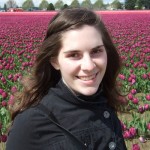
Allison Obourn, UW CSE’s DawgBytes
Allison Obourn is a lecturer in the Computer Science & Engineering Department (CSE) at the University of Washington, where she coordinates K-12 outreach activities for UW CSE’s DawgBytes program.
Cynthia Tee, Ada Developers Academy 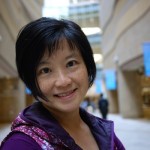
As Executive Director, Cynthia is responsible for expanding Ada’s programs, connecting with more women from diverse backgrounds and preparing them for a wider range of technical careers.

Kelvie Comer, AAUW Tech Trek
Dr. Kelvie C. Comer is serving her second term as AAUW (American Association of University Women) Washington’s President where she serves as the chief executive for an organization that supports education and equity through projects and public policy.
Q1: Why is women in technology important to you?
ALLISON: Technology is a fantastic field to be in. Computer science is helping to solve some of society’s biggest challenges in healthcare, education, transportation, sustainability, and many others. Our field is growing in size and in reach, and we need many, many more computer scientists than we currently have. In order to attract enough people to the field, we have to engage people from diverse backgrounds. It’s not just about quantity–it’s also about quality. Different people bring different perspectives to the table. By engaging more women and other underrepresented groups, we will make our field more reflective of, and responsive to, the community that we serve.
CYNTHIA: Washington state has a major high-skilled labor shortage (25,000 unfilled high-skilled jobs and rising). One of the most challenging roles to recruit within this labor pool is software developers, and over 85% of programmers are male. The lack of talent, combined with the gender gap, is problematic for Washington’s economy. To fill the unmet need and to help rectify the gender imbalance in software development, Washington needs a software development academy that prepares women for productive roles in technical positions. Ada Developers Academy is the solution.
KELVIE: Supporting women in technology is important to me and to AAUW because we believe in equality for women and girls, and because we know that women continue to face barriers to success in tech fields, especially computer science and engineering. Over the last 50-plus years, the percentage of women in engineering has barely moved: from 1% to 12%, and women’s representation in computer science has been stuck at 25%. The 2015 National Center for Women in Information Technology Chart clearly shows the decrease in numbers of women going into technology and the challenges faced by women from diverse populations. While some progress has been made, what will it take to move the needle? All these factors demonstrate that women need the strongest support starting early during their educations in STEM fields, especially in technology. Tech Trek Program, here in Washington State, and indeed, across the US does just that!
Q2: What is your favorite thing about your organization?
ALLISON: There is still a long way to go in terms of ensuring the field of computer science reflects the diversity in the population, but at the University of Washington we have been working really hard to make our department welcoming to everyone. One of the best things about UW Computer Science & Engineering is that it feels like a group effort. Everyone here cares deeply about this issue and is trying to help. Recently, our efforts were recognized by the National Center for Women & Information Technology with its inaugural NEXT Award for promoting women in computing. At this year’s graduation, roughly one-third of our computer science bachelor’s degrees were granted to women. That is around twice the national average! While we can do better, I like that UW CSE is leading the way on this issue.
CYNTHIA: My favorite thing about Ada is that it proves it is never too late to pursue a career in tech innovation—nor do you need thousands of dollars to pay for your education. Ada is tuition free. Everyone is welcome, regardless of sexual orientation, disability, physical appearance, education, age, race, or religion. All women (cis and trans) and people with non-binary gender who feel a part of women’s community are encouraged to apply.
KELVIE: For us, AAUW is the premier U.S. organization advancing equity for women and girls in education and work, a role it has had for over 130 years! Nationwide, there are 170,000 members and supporters and 35 branches located in communities across the state and a virtual on-line branch. Tech Trek is one of 20 week-long residential STEM camps across the US sponsored by AAUW. Tech Trek represents what we love about AAUW: working together, primarily as volunteers, to provide opportunities to girls to achieve in their dreams. This year, Tech Trek will welcome nearly 150 rising eighth grade girls at two different college sites–96 to Pacific Lutheran University (PLU) and 50 to Eastern Washington University (EWU). This camp changes girls lives and creates dreams in their psyches for their futures.
Q3: What would an additional $5,000 enable your organization to do?
ALLISON: $5,000 is roughly equivalent to the total cost for 20 students to attend our summer camps. But we need to increase our capacity and community engagement in order to grow our program. So, in addition to enabling us to provide more scholarship support for campers to attend DawgBytes, additional resources will help us to ramp up staffing. or example, we would like to hire more tour guides to engage with students and their families, and to increase the number of outreach events we organize to encourage more young people, particularly girls, to explore computer science education and careers.
CYNTHIA: An additional $5,000 or more would allow us to provide better financial support for our students while they are in the program. It would also allow us to expand our offerings to cover continued education and training for our students as they grow in their new roles as junior developers. We aim not only to increase the number of women entering the technical work force, but eventually grow female leaders in this space.
KELVIE: This year it costs $900 to send one girl to camp, which covers food, housing, transportation to and from the camp, and the educational programs. An additional $5,000 would support approximately five more campers to attend Tech Trek in 2016. The donations will also enable us to recruit more girls from school districts that are outside of the reach of our branches, often where girls otherwise would never have an opportunity to expand their dreams in STEM study and careers. In addition, our success is due to the work of volunteer members.There are no paid staff with the exception of small stipends paid to the camp directors and teachers. If we received $5,000 from TUNE and other Seattle area tech corporations, we could find volunteers to help us expand this great program in the future.
Join us in supporting Women in Technology at #Postback15. We are accepting donations until July 9. For more information, please email [email protected] or read our blog post about the initiative.
Thank you to the following partners for joining our Women in Tech initiative.
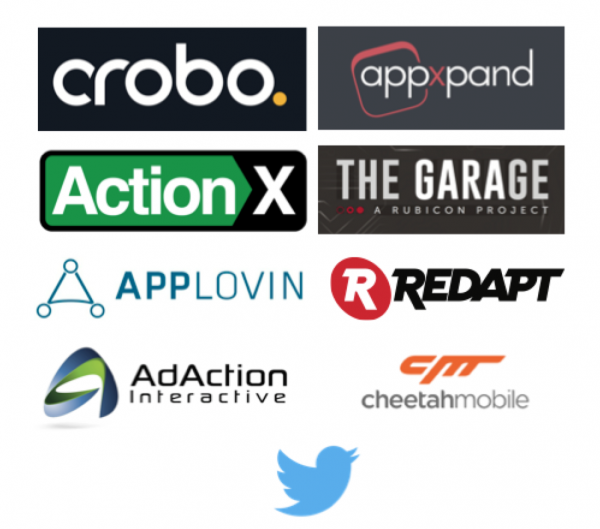
Like this article? Sign up for our blog digest emails.
Author
Becky is the Senior Content Marketing Manager at TUNE. Before TUNE, she handled content strategy and marketing communications at several tech startups in the Bay Area. Becky received her bachelor's degree in English from Wake Forest University. After a decade in San Francisco and Seattle, she has returned home to Charleston, SC, where you can find her strolling through Hampton Park with her pup and enjoying the simple things between adventures with friends and family.

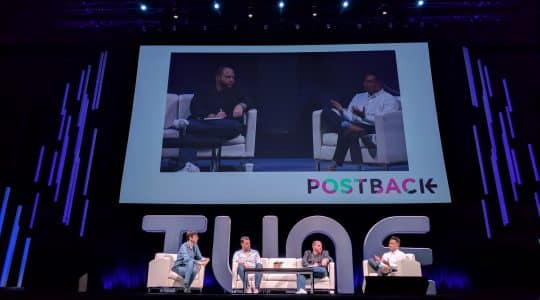

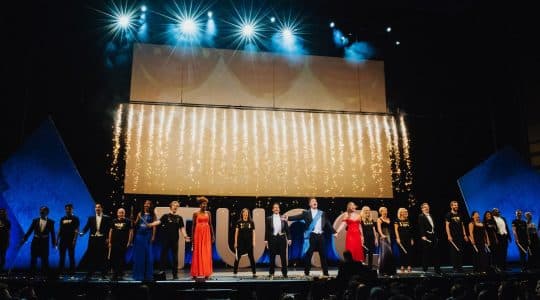
Technology may be a fantastic field to be in. applied science helps to unravel a number of society’s biggest challenges in aid, education, transportation, property, and plenty of others…